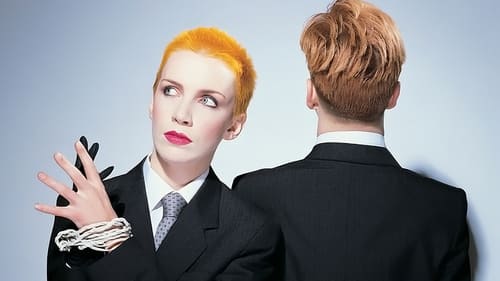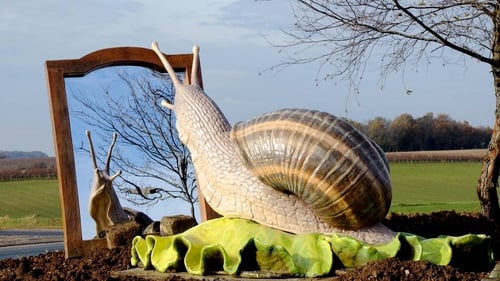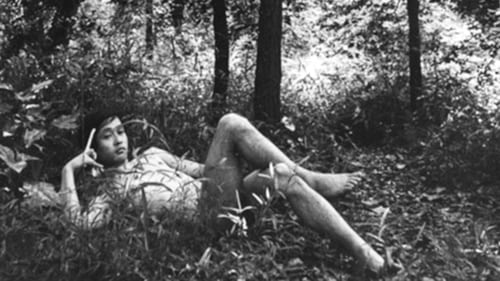Kiss Kiss Kiss (1964)
Gênero : Animação
Runtime : 2M
Director : Tadanori Yokoo
Sinopse
Animation by Tadanori Yokoo.

A visual history of the significance and impact of the Pop Art movement in the Sixties and beyond.

A Pop Art extravaganza by Fred Mogubgub from the late-1960s, innovative in the use of the quick cut, this film is a parade of pop icons of its time. Features a pre-Playboy, pre-N. O. W. Gloria Steinem.

A parade of popular consumer items cut to "The Battle Hymn of the Republic". A great example of Pop Art in film.

London, 1983. The iconic synth-pop band Eurythmics performs at the legendary gay club Heaven.

A musical starring 3 Japanese pop music and TV stars.

A short surreal animation created with fashion magazine clippings and sound collages.

As the only work in this medium by Richter, the film was created for the exhibition Volker Bradke that took place on 13th December 1966 at Galerie Schmela in Düsseldorf. For the purpose of this exhibition, Gerhard Richter addressed the person Volker Bradke in different mediums. In addition to photographs, a banner and a large-scale painting Volker Bradke [CR: 133], the film had been screened. Richter transferred one of the stylistic features of his paintings of that time into film: the blurring.

Animation by Tadanori Yokoo.

An opera for television by Robert Ashley. Set in the American Midwest, it is “about” bank robbery, cocktail lounges, geriatric love, adolescent elopement, the changing of the light at sundown, et al. One of the definitive text-sound compositions of the late 20th century, it has been called "the most influential music/theater/literary work of the 1980s".

Los Angeles-based artist Ed Ruscha’s 1975 short film Miracle centers on a day in the life of an auto mechanic (played by artist Jim Ganzer), who has a transformative experience while working on the engine of a Ford Mustang. Actress and singer Michelle Phillips of the Mamas and the Papas plays his love interest. Since the 1960s, Ruscha has received extensive critical acclaim for his paintings, photographs, drawings, and books exploring the commercial vernacular of Los Angeles—its graphic signage, architecture, and even parking lots. In effect, his work subtly comments on America’s cultural and socioeconomic evolution in the twentieth and twenty-first centuries. Miracle is one of only two films made by the artist in the 1970s. – Contemporary Art Museum St. Louis by Kelly Shindler, Associate Curator

West Coast Pop Art : From the 40's to the 21st Century. Hot Rods, Pin-ups, Movies, Music, Flame Jobs, Posters, TV, Comics, Cowboys, Monsters, Tikis and Cartoons. All these things are influences on the Artists creating the work sometimes referred to as Lowbrow. Visceral beautifully realistic artwork tapping into the vein of media culture that surrounds us daily. Edgy, energetic and entertaining, this dynamic West Coast movement is changing the way we appreciate art and making it accessible and enjoyable to everyone.

Two screens of film about - and sometimes shot by - Claes Oldenburg, detailing his inspiration, his methods and his relationship with his partner Hannah Wilke.

In Europe, road junctions have become public art galleries. A road trip across France, Switzerland, the Canary Islands, Greece and Germany exploring the glorious world of roundabout art.

When the Easter Bunny discovers nobody believes in him anymore, he has an existential crisis.

Jim Dine at work and at home. Includes footage of Dine discussing his life, his artistic development, and what is called "ugly" in his work. Examines a number of Dine's works from different periods, including his tie paintings, tool paintings, palettes, collages, and "happenings," and considers Dine's concern with objects in his work.

Like reading the back pages of a discarded journal revealing the thoughts of a young man slipping into madness, Hers Is A Lush Situation mixes a disjointed narrative with an underlying thread of black humor to give a subtle view on what young, urban lives really look like today.

A proto-music video: three minutes of experimental animation set to the tune of Romeo Nelson's 'Head Rag Hop'.

The Bee Gees preform in this special created for German TV. Also featured are Julie Driscoll, Brian Auger, and the Trinity, and Lili Lindfors.

Correlated with Susan Sontag's theorization of kitsch as well as employing the queer lingo of "camp," this film's relentless equal opportunity pop-art montage shattered the foundations of conventional cinema, making it a true document of the Shinjuku underground scene. Director Okabe himself appears recreating his favorite roles from Bonnie and Clyde to Spaghetti Westerns, as well as incorporating quotations by inserting stills of Godard, Kennedy’s assassination and the Vietnam War.












